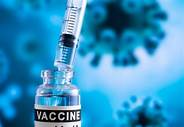January 5, 2022
With the ongoing rise in COVID-19 cases due to the Omicron variant of Sars-Cov-2, we searched for some actual studies on the change in vaccine efficacy due to Omicron exposure.
In one pre-print article, Buchan et al studied 3,442 Omicron-positive cases, 9,201 Delta-positive cases, and 471,545 test-negative controls. They found that after 2 doses of COVID-19 vaccine, vaccine effectiveness against Delta infection declined steadily over time but recovered to 93% (95%CI, 92-94%) ≥7 days after receiving an mRNA vaccine for the third dose. In contrast, receipt of 2 doses of COVID-19 vaccines was not protective against Omicron. Vaccine effectiveness against Omicron was 37% (95%CI, 19-50%) ≥7 days after receiving an mRNA vaccine for the third dose, although with a wider confidence interval. Their results are from a multivariate logistic regression model.
In an article published in New England Journal of Medicine, using data from Discovery Health, a South African managed care organization, Collie et al estimated the vaccine effectiveness of two doses of the BNT162b2 vaccine (i.e., full vaccination) against hospitalization for Covid-19 caused by the omicron variant by analyzing data sets that included the results of polymerase-chain-reaction (PCR) assays and other admission data/medical records. They used a test-negative design and data-exclusion rules to obtain estimates of vaccine effectiveness. They described test negative case control studies in their supplementary appendix as having been deemed powerful to assess vaccinations for a range of diseases. They describe that the design specifies cases as individuals who tested positive with COVID19 and controls with a negative test. The design of the study tries to overcome selection bias of healthcare seeking behavior through selection of individuals who have both tested. At they stated, their core assumption of the test negative design is predicated on the assumption that the intervention (vaccine) has no effect on other diseases with similar symptoms. Therefore, using the test negative strategy, they used the following formula:1−odds ratio for Covid-19 hospitalization in the vaccinated population, where the odds ratio was calculated with the use of logistic regression after adjustment for confounders of age, sex, previous Covid-19 infection, surveillance week, geographic location, and the number of CDC risk factors. In this analysis, Covid-19 hospitalization was a dependent variable, and vaccination status was included as an independent variable in the model. During the proxy omicron period, they found a vaccine effectiveness of 70% (95% confidence interval [CI], 62 to 76), a finding that was supported by the results of all sensitivity tests. This measure of vaccine effectiveness was significantly different from that during the comparator period, when the rate was 93% (95% CI, 90 to 94) against hospitalization for Covid-19 (Table 2).
They then concluded that during the proxy omicron period, that they saw a maintenance of effectiveness of the BNT162b2 vaccine, although at a reduced level, against hospital admission for Covid-19 that was presumed to have been caused by the omicron variant as compared with the rate associated with the delta variant earlier in the year. The addition of a booster dose of vaccine may mitigate this reduction in vaccine effectiveness.
Why is there a discrepancy between vaccine effectiveness in one study population vs another? Is it possible because the Canadian study published in a pre-print hasn’t yet been reviewed that maybe we cannot truly compare its result to that of the already published study from South Africa in the NEJM? Over time it will be interesting to see more studies come out and we hope just like these studies have done that they publish their statistical methods that would have been used.
Written by,
Usha Govindarajulu
Keywords:
COVID-19, vaccine effectiveness, logistic regression, biostatistics
References
Buchan SA, Chung H, Brown KA, Austin PC, Fell DB, Gubbay JB, Nasreen S, Schwartz KL, Sundaram ME, Wilson MK, Wilson SE, and Kwong JC. (January 1, 2022). “Effectiveness of COVID-19 vaccines against Omicron or Delta infection” medRxiv 2021.12.30.21268565; doi:https://doi.org/10.1101/2021.12.30.21268565
https://www.medrxiv.org/content/10.1101/2021.12.30.21268565v1
Collie S, Champion J, Moultrie H, Bekker L-G, Gray G. (December 29, 2021). “Effectiveness of BNT162b2 Vaccine against Omicron Variant in South Africa”. NEJM. DOI: 10.1056/NEJMc2119270. https://www.nejm.org/doi/full/10.1056/NEJMc2119270
https://tse2.mm.bing.net/th?id=OIF.46QSgF0mhqGLHnIoU7DRfA&pid=Api&P=0&w=184&h=127
